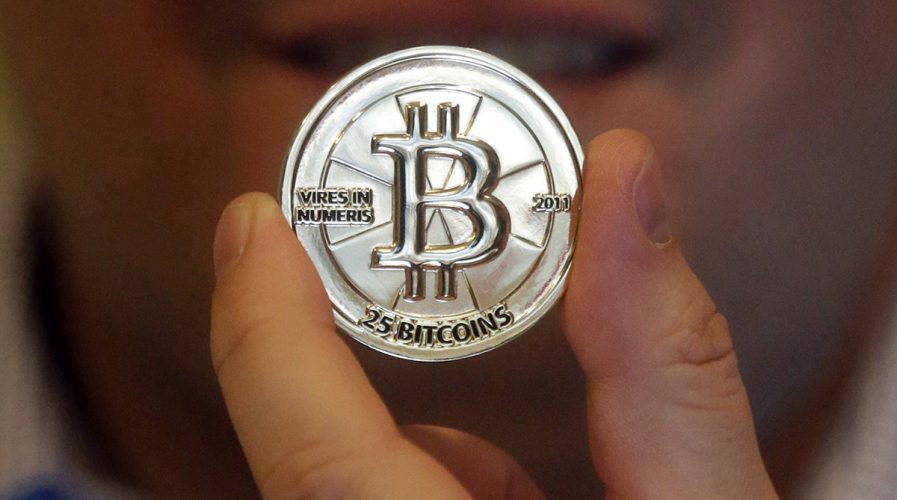
Bitcoin Cash – created from a split from Bitcoin – got off to a slow start due to lackluster support for its network. Source: AP
Bitcoin Cash: Fate and future of the new cryptocurrency
ON Tuesday, Bitcoin’s underlying code was split, creating a new clone called “Bitcoin Cash”.
However, the new virtual currency got off to a slow start due to lackluster support for its network.
The initiative, according to Reuters, was headed by a small group of mostly China-based Bitcoin miners – programmers who essentially operate the Bitcoin network – who were not happy with scheduled improvements to the currency’s technology meant to increase its capacity to process transactions.
These miners, who get paid in the currency for contributing computing power to the bitcoin network, initiated what is known as a “fork” on Tuesday, where the underlying blockchain splits into two potential paths, creating a new digital currency.
The blockchain is a shared online ledger of all bitcoin transactions and has spawned a range of financial and business applications.
Bitcoin’s split has created a new competitor to the original digital currency, which remains the oldest and most valuable in circulation.
Yet only a small fraction of Bitcoin miners have been contributing their computing power to the new blockchain, and it took nearly six hours for the first batch of Bitcoin Cash coins to be mined yesterday afternoon, according to Blockdozer Explorer, a firm providing data on digital currencies.
What leads to the split?
Faced with limitations involving its public ledger, or blockchain, Bitcoin’s developers were looking into ways to cope with catering to an increased demand for the cryptocurrency.
For years, the developers had debated about how they would change Bitcoin, leading to the emergence of two different ideological camps who were at loggerheads as to how this should be done. This resulted in the “forking” that led to the creation of Bitcoin Cash, which has several technical differences from its “predecessor”.
But the need for change brought along with it major challenges. Developers could not make unilateral adjustments to the blockchain without agreement from groups and companies who were mining Bitcoin – the people creating Bitcoin and running the transactions of the buying and selling of Bitcoin.
SEE ALSO: Bitcoin poised to become official in India as soon as next week
According to University of Western Australia’s Centre for Software Practice director David Glance, Bitcoin’s original design, was restrictive in its way of processing transactions and putting them on its blockchain.
Developers imposed these restrictions in favor of security over functionality, which was not a problem in Bitcoin’s infancy, when not so many people were using currency.
However, the divided group of developers and followers, later on, had different views on the options of lifting the restrictions.
The first group comprising Bitcoin’s core developers proposed a gradual approach to creating more space in the ledger by shuffling how things were stored, Glance said. He added the second step was to increase the size of the “blocks” or groups of transactions added to the blockchain.
On the other side of the argument was another group of developers led by ex-Facebook developer Amaury Séchet, who came up with a different design altogether as they did not believe the gradual approach would pull through.
Glance said the creation of Bitcoin cash “essentially meant diverging from the existing Bitcoin blockchain and creating their own version.”
“The only way they saw of implementing this design was to set a time and then start creating their own version of Bitcoin, Bitcoin Cash,” he said, in a column posted on The Conversation.
“The argument has not just been about technology. There are ideological and commercial interests driving the various players.”
Slow start for Bitcoin Cash
Trading platform eToro managing director Iqbal Gandham said Bitcoin cash’s foray into the cryptocurrency appeared sluggish.
“The delay … could be a result of a lack of miner support for the new cryptocurrency,” he said.
Bitcoin Cash on Tuesday traded on certain exchanges at a median price of $146.37, according to bitinfocharts.com, while Bitcoin was at $2,729 BTC=BTSP on the BitStamp platform, down 4.6 percent from Monday.
After the split, Bitcoin Cash has all the history from Bitcoin’s blockchain, creating the same number of tokens, plus the new currency created. People who held bitcoins before the split now have access to an equal amount of Bitcoin Cash for free, which they will then be able to trade for fiat currencies – legal tenders such as euros and dollars – or other digital tokens.
The creation of new tokens may speed up as less computing power will be required to mine new blocks, blockchain startup co-founder Jeff Garzikin said an email.
Ryan Taylor, chief executive of Dash Core, a firm that manages the development of the Dash digital currency, said Bitcoin Cash may yet be short-lived.
“Bitcoin Cash has not solved scaling,” Dash said. “It has merely kicked the can down the road with slightly larger blocks, but still lacks a credible technology to scale to massively larger numbers of users.”
Additional reporting by Reuters
